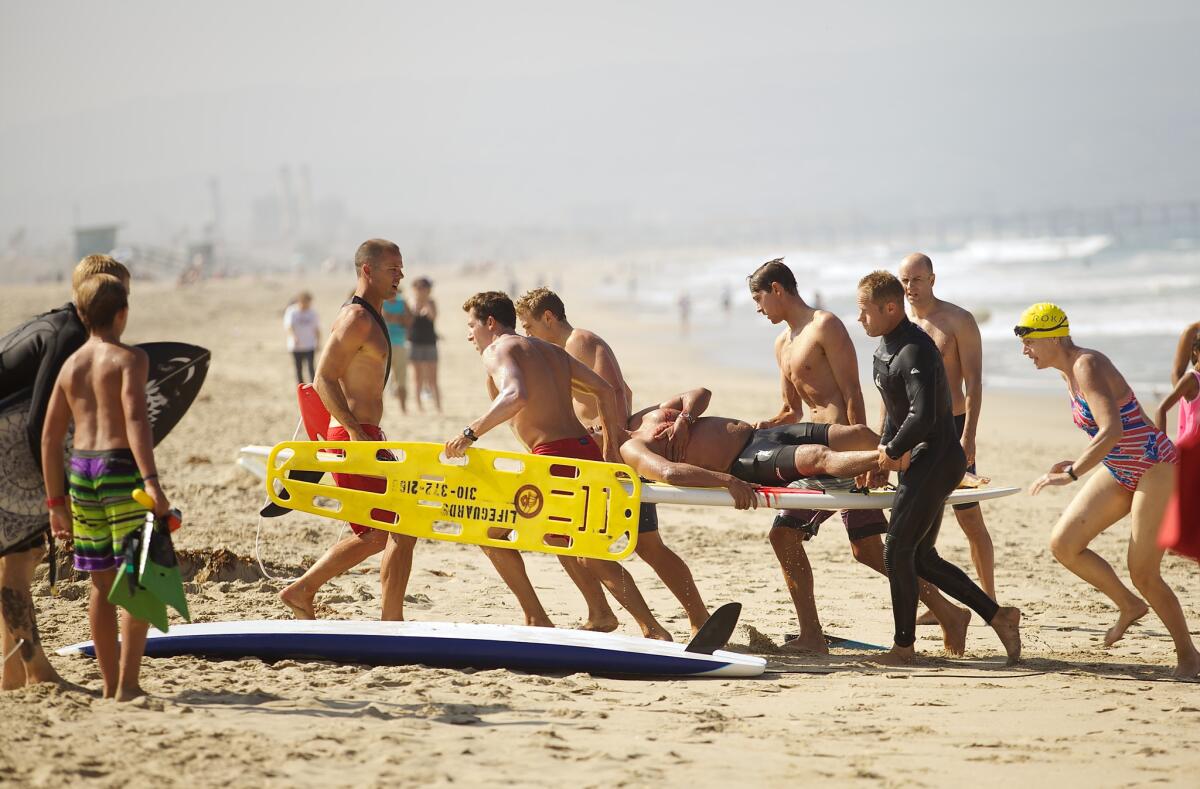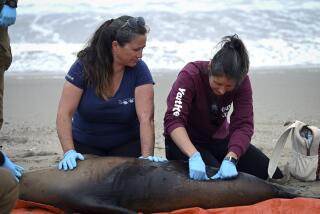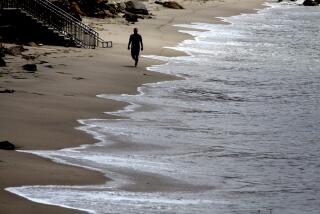Despite recent sightings, shark attacks uncommon in U.S., California

Itâs probably safe to go back in the water.
Despite a recent string of shark sightings off Manhattan Beach, including one that ended with a swimmer being hospitalized after he was bitten near the pier Saturday morning, reports of shark attacks are uncommon in the United States, records show.
According to data tracked by the Florida Museum of Natural History, there were 39 reported shark attacks in California from 2001 to 2013, or 3.25 per year, and five of them resulted in fatalities.
East Coast swimmers are much more likely to wind up the victims of a shark attack, according to the data. Of the 477 reported shark attacks in the U.S. over those 12 years, 62% occurred in Florida.
California ranked fourth in the nation during that time span, while Hawaii had the second most attacks with 65, records show. Twelve of those attacks, including one fatal bite, happened in 2013, according to the data.
All told, 12 people died from injuries sustained in shark attacks in the U.S. from 2001 to 2013, records show.
Still, swimmers might be slightly uneasy about a series of instances in the last six months in which great white sharks were spotted near paddleboarders off Manhattan Beach, including one in June.
In December, a paddleboarder shot video of three great whites between 8 and 10 feet long, circling underneath his board. Evidence of other close encounters have been posted to YouTube recently, showing the glistening predators moving around in the waters near the shore.
Researchers have said the sharks are likely juveniles learning to feed, and they might be drawn to warmer waters in the area.
Californiaâs last fatal shark attack was in 2012, when a 16-foot great white mauled Francisco Javier Solorio Jr. while he was surfing near Lompoc. The 39-year-old suffered a large wound to his torso and died shortly thereafter.
The victim in Saturdayâs attack on Manhattan Beach was not identified, but was said to be in stable condition after the bite, according to the Los Angeles County Fire Departmentâs Lifeguard Division.
The shark may have been provoked by human activity prior to the attack. Fre officials said the animal was âhookedâ by a local fisherman before 9 a.m.
Follow @JamesQueallyLAT for breaking news
More to Read
Sign up for Essential California
The most important California stories and recommendations in your inbox every morning.
You may occasionally receive promotional content from the Los Angeles Times.











